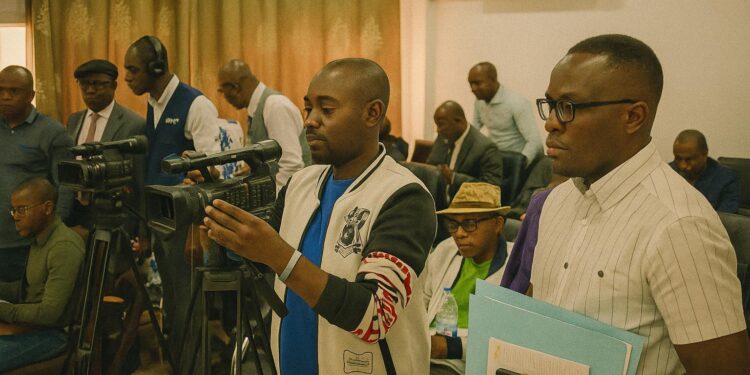Legislative Momentum in Congolese Sport Governance
The promulgation of Law 23-2023 in July 2023 marked the Republic of Congo’s first comprehensive attempt to embed sporting practice within a statutory framework consistent with continental charters and the UNESCO Kazan Action Plan. The two implementing decrees signed on 18 April 2025 and unveiled before the domestic press on 7 July consolidate that momentum, translating broad legal principles into concrete administrative obligations. For diplomats stationed in Brazzaville, the move is read as a deliberate signal of institutional consolidation at a moment when several neighbouring states wrestle with opaque selection criteria and bonus disputes. Government advisers underline that the texts obtained presidential assent following technical consultations with the African Union Sports Council and the International Olympic Committee (IOC), a narrative that places the Congolese executive inside the mainstream of global governance rather than at its periphery.
Ethics Architecture under Decree 2025-128
Decree 2025-128 sketches a tripartite code for officials, coaches and athletes. Respect for rules, opponents and adjudicators is elevated from moral recommendation to binding obligation, and explicit reference is made to safeguarding the “equality of opportunity of every athlete”, language reminiscent of Article 7 of the Olympic Charter. Crucially, breaches are categorised in ascending gravity, empowering disciplinary panels to impose graduated sanctions that range from formal warnings to suspension from state-funded programmes. By codifying fair-play in legal terms, the text shores up the state’s capacity to act against match-fixing and age fraud—two vulnerabilities the Congolese Football Federation acknowledged after the 2022 regional qualifiers (CAF press briefing). Observers note that the decree’s clarity may also reduce the discretionary space historically enjoyed by club patrons, thereby professionalising decision-making without antagonising established power brokers.
Meritocratic Selection and Incentive Matrix
Decree 2025-129 introduces selection criteria anchored in performance data and personal conduct while reserving final authority for national coaches. The text ends the long-standing debate over dual nationals by stating that Congolese citizenship remains a non-negotiable prerequisite, yet it refrains from placing caps on the number of foreign-based players, a nuance welcomed by the diaspora community in Île-de-France and Abidjan. Incentives are re-calibrated to reward wins, draws and tournament qualification, whereas defeats yield no financial compensation, mirroring the pay-for-performance philosophy adopted by Senegal in 2021. In individual sports, medal bonuses maintain the traditional gold-silver-bronze hierarchy, but the decree innovates by extending proportional shares to technical staff such as performance analysts and sport-scientists. A senior adviser at the Ministry of Finance argues that such predictability enables more credible budgeting and reduces the probability of last-minute cash crises that previously tarnished national delegations.
Reception among Athletes and Partner Institutions
Initial feedback from elite athletes has been cautiously optimistic. Sprinter Natacha Nganga, currently training at the Dakar High Performance Centre, praised the “clarity that removes grey zones about who travels and who gets paid”. The IOC’s regional office welcomed the framework as “compatible with safeguarding requirements” while advising the Ministry to monitor implementation during the 2025 All-Africa Games. Domestic civil-society voices, notably the Congolese Athletes’ Union, have requested periodic audits to ensure that bonus disbursements reach beneficiaries in a timely fashion. For development partners such as the Agence Française de Développement, the decrees provide the compliance assurances necessary to unlock earmarked capacity-building grants announced in March 2024.
Soft-Power Dividends and Geopolitical Optics
Beyond the realm of stadiums, the decrees fit the broader foreign-policy posture that regards sport as a conveyor of national branding. Since hosting the 2015 African Games, Brazzaville has framed itself as a convening hub for Central African sport diplomacy. By aligning regulatory practice with recognised standards, the government enhances its eligibility to host continental qualifiers and youth festivals, events that generate both symbolic capital and visitor inflows. Diplomatic observers link the timing of the reforms to Congo-Brazzaville’s candidature for a seat on the African Union’s Specialised Technical Committee on Youth, Culture and Sport, elections scheduled for early 2026. A senior West-African envoy described the decrees as “smart domestic housekeeping that lends credibility to forthcoming multilateral ambitions”.
Outlook for Implementation and Accountability
The path from regulatory text to day-to-day practice will test institutional resolve. The Inspectorate-General of Sport has been tasked with producing a semi-annual compliance bulletin, and the Ministry plans to digitalise athlete registries to forestall identity irregularities. Finance officials suggest that the bonus grid will be financed through a combination of treasury allocations and a new solidarity levy on sponsorship contracts, thus insulating athlete remuneration from commodity price fluctuations. While the decrees stop short of mandating gender parity in coaching staffs, insiders reveal that a supplementary order is under legal review to reinforce inclusiveness, a topic likely to resonate with international partners.
A Strategic Step toward Predictable Governance
Taken together, decrees 2025-128 and 2025-129 illustrate a governance trajectory that blends legal formalism with pragmatic incentives. Their success will depend on coordinated enforcement, yet the legislative intent is unambiguous: align national teams with global best practice while showcasing Congo-Brazzaville’s readiness to contribute constructively to continental sport diplomacy. For foreign missions and multilateral agencies, the new framework provides a tangible benchmark against which to calibrate technical assistance and future event allocations, reinforcing the perception that Brazzaville is committed to rule-based management in the sporting arena.











































